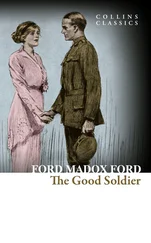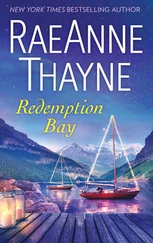“Have you got company?” she said.
“Not just now.”
“But you did have, though, right?” She looked over at him smiling.
“They think we’re married,” he said. “It makes better sense.”
“Isn’t that rich,” she said. “Why would they care?”
“Maybe they don’t,” Quinn said. “Maybe I made it up.”
“Fine,” she said, and looked away. “Then I’ll stay with you. I don’t like to see failure in your face. I’m sure the Mexicans don’t either. It’s such an unusual expression.”
WHEN HE WAS FIVE his father caught a sleeve accidentally in the belt mouth of a John Deere husker on a dairy farm outside Manistee, Michigan. And when the man who owned the farm, a Dutchman named Van’t Hul, noticed him from a long way off, pulled flush against the husker’s shiny green cowling waving his free arm in the air, he came running to see what was exciting. The hand was pulled in pieces when he got there to help, and most of it was stripped loose of the arm and the bones had jammed in the husker and shut down the works as truly as a piece of hickory. But when his father got out of the hospital, he set about to quit working farms and quit saving money for farmland and quit laying up surplus machines, and moved out of Manistee County altogether and into a rented stucco house with birch trees on Menominee Street in Traverse City and went to work for John Deere selling huskers with metal features across their conveyor mouths, using his new red stump for a selling aid. His father began to seem happier right away and laughed all the time and made jokes, and smoked big cigars and told his customers he enjoyed selling huskers more than he enjoyed working them, and that if he hadn’t lost his hand to one he would never have gotten the chance to get smart. Though for years after the accident his mother would wake up in the night and scream “hand! hand!” as loud as she could because she had a phantom dream where she saw it all happening again, even though she hadn’t seen it the first time. He could remember being nine and waking up at night after the screaming had stopped, hearing his father talking in the next room in a soft consoling voice, calming his wife back into sleep. And when Quinn was thirteen, his father told him, sitting in an ice hut in the middle of Traverse Bay, that sometimes while he soothed her it was everything he could do to keep himself from breaking out laughing, because he thought that if he hadn’t lost his hand and given up the idea of a farm, he’d have gone crazy in no time at all, and his wife would’ve left him as a failure, and his whole life and Quinn’s too would’ve been nothing but a misery from then on out.

In November, Quinn had begun running the deer tag stations on the county roads between East Jordan and Mancelona, and working nights in the D.N.R. Scout, sitting alert in the trees with the door open to the frozen air, waiting to see a seal beam snap on in the five breaks or in the old white pine slashes, and hear a poacher’s.22 crack in the cold, and start idling toward where the noise was, lights out. He liked that, the high-density sensation of solo work at night. It made you feel out of time and out of real space and located closer to yourself, as if located was the illusion, the thing he’d missed since he’d come back, the ultimate good luck.
Rae hadn’t liked things from the beginning. Quinn had bought a mobile home in Traverse City and moved it up onto a finished basement at the top of the bay where the birches and the alder woods plugged the wind. She hadn’t liked the trailer and hadn’t liked where it sat at the edge of a cutover orchard, too near the timber for light to stay in the trailer all day. She didn’t like Michigan. She told him it was too glacial and ground down and too bleak and uncharming to be a place where people lived. She said she liked the West, liked the mountains, liked looking up and down at things instead of across at them. She didn’t like the flathead bars and the no-menu cafés he took her to in Mancelona and Torch Lake and down in Traverse, wherever he was working. Sometimes in the bar light he’d see a face he knew, somebody from school, somebody he might talk to but didn’t get around to talking to somehow, and it made Rae mad. And late at night they’d go home in the Scout and she’d be mad.
He began to come home mornings in the first December they were in the trailer and find Rae out of the bed, see her through the window, standing in her yellow parka at the farthest verge of the orchard where it swelled up into the alders, looking down at the trailer and at him when he drove up as if it was a sight that kept appearing to her in a dream, but that she couldn’t believe really existed in her life and had to go out and stand in the clear cold and verify for herself every day. In a little while she would come inside where he was cooking eggs, standing at the stove in his undershirt and suspenders with all the lights on and the heat up in the kitchen and the grease thick in the air.
Once she said to him: “I never thought I’d live in a trailer in the woods with a game warden. You know that? It wasn’t what I had in mind for myself when I was twelve.”
He stooped and stared out the cold kitchen window at the fog running off the snow crust, swarming back through the bare white birch trunks into the denser timber. He liked the plain, compacted loneliness, the low almost pleasing pain of knowing nothing of any consequence was going bad for once. “I never thought I’d fly helicopters and pour shit on Chinamen either, but I did.”
“You wanted that, though, didn’t you?” she said.
“Sure.” He watched the eggs casually where they broke up in the grease, turning pale.
“Do you have bad dreams about that now?”
“No, I never do.” He thumbed down the heat and let the eggs rubber up and go hard.
“I just think, you know,” she said calmly, and waited a moment. “I mean, I just kick around in here.” She looked at him. She still had on her yellow parka, her hair tied back. “I thought you’d ease up. I thought it was because of the war, but that’s not right, is it?”
He slid the eggs onto his plate, carried the plate to the table, and set it down. “I could’ve told you that,” he said.
“Why didn’t you?” She smiled at him in wonderment.
“It didn’t occur to me, I guess,” he said.
“I don’t know what you expect me to do,” she said.
“Nothing,” he said. “Anything.” He began to eat his eggs.
“But can you please just tell me what it is you don’t like or do like. I feel by myself even when you are here anymore.”
He looked up at her across the table. “I don’t know what I can do about that,” he said. “You can be by yourself with me.”
“And is that good enough for you?” she said.
“I guess so,” he said.
“But what?”
“But nothing.” He put his fork down and wiped his mouth.
“Is that all?” she said.
“I’m alone most of the time,” he said.
She smiled at him. “Does that make you feel powerful? That’s what the Indians think. They think it protects them. Except you don’t need protecting, do you, Harry?”
“Everybody needs protecting,” he said.
“From what?”
“From everything they don’t know about.”
“But why do you want to call that being in love?” she said.
“I don’t know what else you call it.”
She stood up from the table. “We make a hell of a couple,” she said.
“Maybe I’m not a very nice person. You know?” He tried to catch her eye. “Maybe something ruined me.”
Читать дальше








![Theresa Cheung - The Dream Dictionary from A to Z [Revised edition] - The Ultimate A–Z to Interpret the Secrets of Your Dreams](/books/692092/theresa-cheung-the-dream-dictionary-from-a-to-z-r-thumb.webp)




